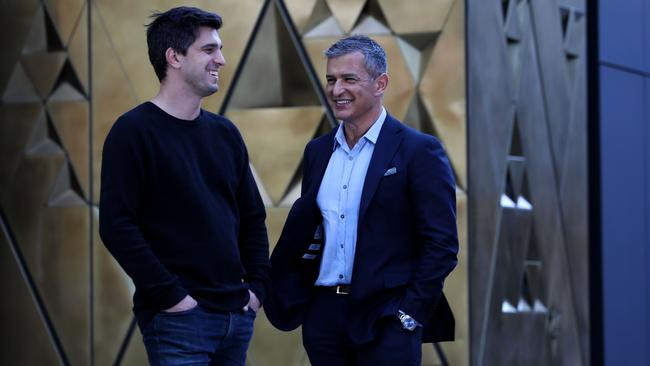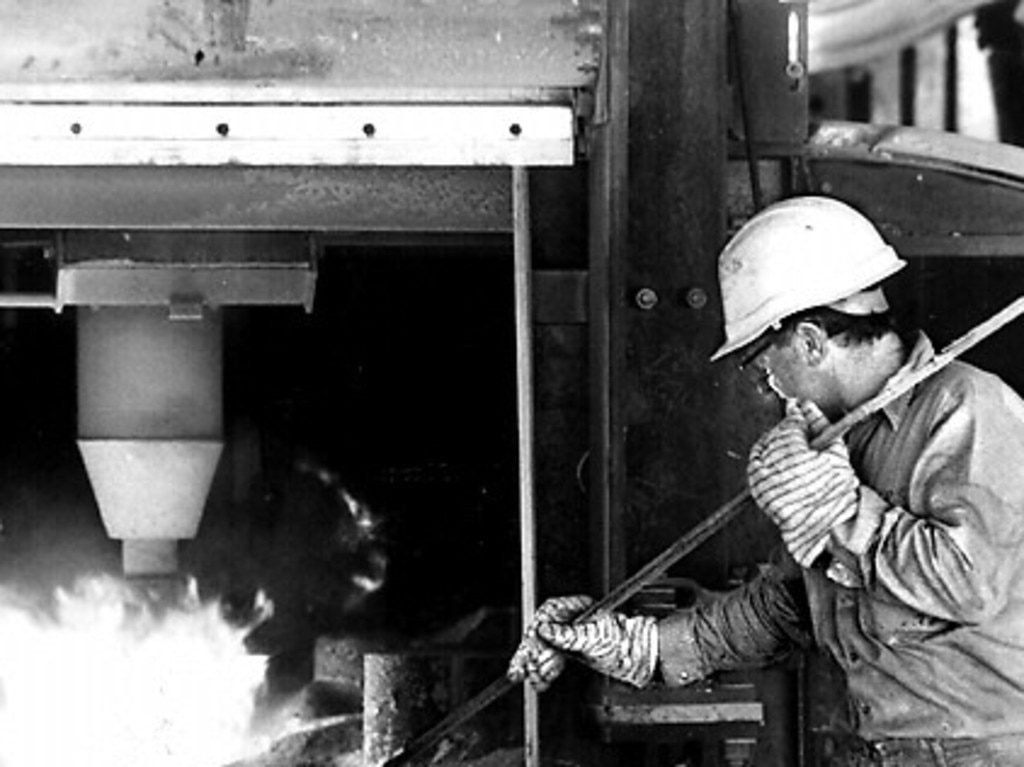Shift to online shopping ‘will be good for retail’
The pace of Australia’s shift to online shopping is expected to only get faster.

The pace of Australia’s shift to online shopping will only get faster as the COVID-19 pandemic resets the way consumers work and play, according to two executives watching the change from the frontline.
Australian Retailers Association chief executive Paul Zahra and Afterpay co-founder Nick Molnar told The Australian a growing preference for shopping locally and from home would rapidly reshape retail, with online purchases on track to make up one-fifth of all sales in as little as 18 months.
Mr Zahra said the accelerated shift to online would see the closure of more physical stores, a trend that was already evident with the rising number of “for lease” signs in the windows of vacant stores.
But the accelerated move to online sales would be good for retail, pushing through changes at a much faster rate than would have occurred under normal conditions, he said, to underwrite the industry’s long-term viability.
At the same time, online shopping in Australia would more than double its share of total retail sales by 2022, Mr Zahra forecast.
“Pre-COVID online sales were about 10 per cent of total retail sales,” he said. “We estimate it could hit 20 per cent in the next 18 months to two years.”
The step-change would be driven by a longer-term proclivity for buying from home or close by, as habits set during the pandemic bedded down.
Mr Molnar, whose payments provider has access to rich data on transaction geography, pointed to the way small business had held up well during the pandemic as people shopped in their local communities.
“Small business has shown a lot of resilience,” Mr Molnar said. “There is a sense of community.
“People want to support local businesses and brands they love. There has been great support for Australian small business.”
But Mr Zahra, a former chief executive of department store group David Jones, said department stores had been hit hard by the pandemic as people were avoiding city centres.
COVID-19 had already significantly accelerated the trend towards online shopping, with people not wanting to travel to shops, particularly big city centres.
A generation of older consumers also had to learn how to shop online due to lockdown restrictions.
“COVID-19 has exposed economic weaknesses but it has also accelerated trends,” Mr Zahra said.
“It has accelerated a decade of change in retail. Online sales have been showing double and triple-digit growth.”
Financial results released by retailers over the past month have reinforced that shift, with online furniture retailer Temple & Webster reporting a 269.5 per cent rise in net profit to $13.9m for the 2020 financial year.
Myer reported an annual loss of $172m, but its online sales rocketed 61 per cent to $422.5m for the year. Others including JB Hi-Fi and Super Retail Group also posted fast-paced growth in online sales.
The two were speaking as Afterpay further expanded its links with retailers, signing a deal with the ARA.
Mr Molnar said the deal would allow ARA members more access to retail trends and insights gathered by Afterpay, which has operations in Australia, the US, Britain and New Zealand.
The deal also involves training programs for small businesses on digital transformation as well as industry-wide campaigns.
Mr Zahra said retailers that had invested the most in their online sales strategies were doing the best during the pandemic. Meanwhile, people now opting to shop more locally were less concerned with price and more focused on convenience. This included having access to services such as “click and collect”, kerbside collection of goods ordered online and personal shoppers.
Mr Zahra said those preference changes would underwrite the long-term resilience of the industry. “The death of retail has been greatly exaggerated,” he said.
“The crisis will see the rebirth of retail, not the death of retail.”
He said retail sales had held up much stronger than many people had expected thanks to a combination of federal government stimulus programs such as JobKeeper and JobSeeker and the fact that people could not travel or spend much money on going out to restaurants or events.
Spending more time at home, people were investing a lot more on homeware, home improvement and food and liquor, but less on fashion as they were not going to work or to events.
Afterpay’s Mr Molnar said COVID-19 had also accelerated the trend away from the use of credit cards towards debit cards.








To join the conversation, please log in. Don't have an account? Register
Join the conversation, you are commenting as Logout